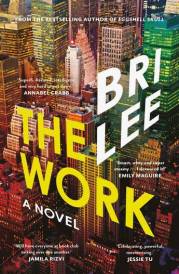Geoffrey Rush Quills

No Oscar Rush for Geoffrey who Bears All for His Art.
Exclusive Geoffrey Rush/Quills Interview by Paul FischerEver since his Oscar win for Shine, Aussie Geoffrey Rush has been in high demand, the most sought after character actor in Hollywood. Now back on screen in the much anticipated Quills, Rush again 'shines' as the lascivious Marquis de Sade, a performance which may well garner the actor a second Oscar. 30 years after first seeing him on stage opposite an unknown Mel Gibson in Waiting for Godot, Paul Fischer met the actor in Los Angeles, where they discussed the Marquis, acting and Oscar talk.
Geoffrey Rush has better things t think about than the dreaded Oscar buzz. In a year considered by most lacklustre at best, in terms of Hollywood product, a biting and timely satire on sex, politics and censorship, has tongues a wagging here. In this sexually conservative town, it is ironic that a film that pokes fun at that very conservative, is being touted as a major Oscar contender, with Rush a likely recipient. Jovially courting local media in a trendy LA hotel, Rush dismisses the so-called Oscar talk. After all, as Shakespeare so eloquently put it, 'The play's the thing'.
Quills is a predominantly fictional work that reconstructs the unknown fate of the Marquis de Sade, the writer and sexual deviant who was imprisoned in Charenton Asylum for the last 10 years of his life. In the film, directed by veteran Philip Kaufman (The Unbearable Lightness of Being, Henry and June) the Marquis de Sade (Rush) befriends the director of the asylum, Abbe Coulmier (Joaquin Phoenix), and both share affections with the asylum laundress, Madeleine (Kate Winslet). But when Napoleon sends in a doctor (Michael Caine) to cure the Marquis of his supposed madness, the Marquis's rebellious character only grows stronger. Although Quills, based on the acclaimed play by Doug Wright (who also wrote the screenplay), is set in eighteenth century France, Rush points out the film's contemporary relevance. "This is PARTICULAR version of the Marquis, I would say. The play that it's based on was originally triggered by a genuine concern on the author's part of what was happening with the NEA [America's controversial National Endowment of the Arts) and the infamous Maplethorpe-Jesse Helms goings on in the art world," Rush explains. The actor sees the Marquis - in this interpretation -as being a "suitable lurid figure and metaphor as to how mutually inclusive or exclusive the forces of repression and repression." To elucidate further, Rush sees this piece as representing the "symbiotic relationship between the oppressor and the muse." Quills is not your standard movie biography, Rush says, "though the elements of his life are pretty well realised." Rush did read a lot about the Marquis, including psychological and Freudian profiles of the man, "but I also think there's a point where there's research poison." Rush used Wright's play as the foundation to building this extraordinary character. "He exists within the license and privilege of being an aristocrat, which was a very significant part of his society at the time. The script tells me that he's someone who likes to talk dirty all the time, and that's part of his provocation."
Quills is a film punctuated by Rush's quite brazen performance, one that becomes more intense and raw as the film ensues. Indeed, the actor spends the last act of the film totally nude, symbolising the stripping away of the Marquis' artistic self-expression. Looking at the movie, it seems like a harrowing ordeal for an actor to go through, but for this classically trained man of the theatre, it was part of an overall creative process. "The impact of what you get in a period of two hours, for us is a whole process that takes over 12 weeks, so it's never on a daily basis as intense; it has moments of that." Despite the film's intense material, Rush sense that there was "a continual sense of playfulness" on the set, inspired by director Kaufman as well as the ensemble cast with which he worked.
As conservative Hollywood can be, none of that conservatism is prevalent in Quills. The piece's tackling of the material clearly attracted Rush t become a part of it, and he willingly embraced it. "I think everyone knew that it was material that had to be met head on. I mean you could diminish the piece or the dimensions of the argument by shying away from it and delivering safe, comfortable and not very dangerous moments in performance. So collaboratively you find out where those moments are." While most films are shot out of sequence, Quills was not, which enabled this actor's actor to work methodically on the remarkable and harrowing journey that Sade undertakes. "It was great to journey through all of that in sequence because you literally went a day at a time", which Rush recalls was scary at times "thinking ahead to the nightmares that lay ahead. But you didn't have to over-anticipate it because you could take all the appropriate steps." That includes the scene where he is forced to strip. "That was done in a more comic vein in the play, but by the time we'd gotten to that moment in our film, we'd already established that tone beforehand, and somehow the relationship between the priest and the libertine at THAT point, needed to get much more psychologically sinister."
Rush first became familiar with the Marquis de Sade as a young student at Australia's Queensland University, though he admits that the Marquis' work "was what you'd call 'extra-curricular' reading; I don't think the Marquis de Sade was actually on our official reading list", the actor insists, grinningly. But perhaps in a touch of irony, studying the Sade's work all those years ago may have further fuelled his own passions to act. "I never thought of that on any conscious level but maybe so." After Rush moved to Sydney and shared lodgings with up-and-coming Thespian Mel Gibson, the pair treaded the boards in Samuel Becket's Waiting for Godot. Much has changed since those halcyon days. While Mel concentrated on movies, Rush became one of Australia's celebrated stage actors, until Shine changed his life. Asked how he has changed, and his perceptions of acting, have changed, since that Godot period, reflects on the larger-than-life characters that have defined the actor in a certain way. "There's a kind of theatrical metaphor of madness which is a great liberator for revealing the absurdity of the world. So in some ways there's a repertoire there of me playing con artists and sleaze bags and idiots in Shakespeare and the like, that I've explored in different ways." At the same time, Rush adds reflectively, "I always try and find the antidote to that", such as a five year old starting school on stage. Rush may have a gallery of eccentrics to his career, but the fun is surprising himself, and audiences.
"It's a very European mentality, particularly in films. I think in America there's a kind of a singularity in the hero, but European is defined by many figures in a landscape with complex layers and the storytelling being much more obtuse and less predictable." Predictable is not what you get from Mr Rush. By the way, he quickly adds as we conclude, his next two films will be "nice and contemporary. I also manage to keep my clothes on." Rush is next due to return to Sydney to appear in a new film from Bliss director Ray Lawrence.
Order Now from Dstore
Order Now from Top Shop
Order Now from Chaos
Order Now from Sanity
MORE
- Viggo Mortensen The Road
- 24 Cast Reunion
- Aaron Eckhardt No Reservations
- Aaron Eckhart The Dark Knight
- Adam McKay Step Brothers Interview
- Alan Alda Diminished Capacity Interview
- Alan Alda Diminished Capacity Interview
- Alex Dimitriades
- Al Pacino Oceans 13
- Alan Rickman Snow Cake
- Alan Rickman Sweeney Todd
Copyright © 2001 - Female.com.au, a Trillion.com Company - All rights reserved. 6-8 East Concourse, Beaumaris, Vic 3193, Australia.



